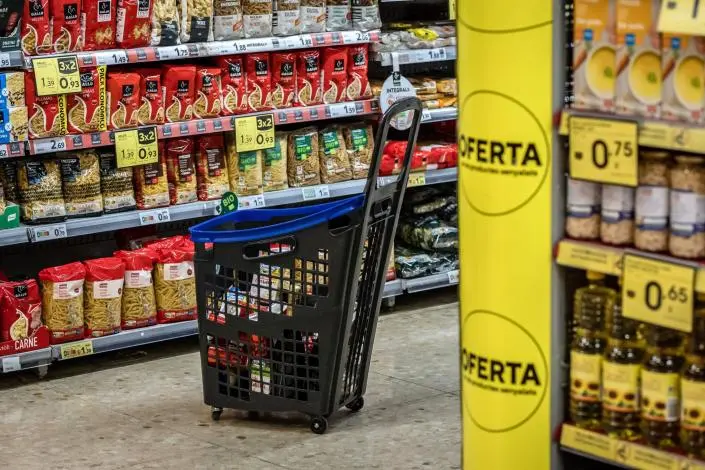Europe’s inflation crisis is reaching new heights, with governments grappling to tackle the escalating food fight that is causing widespread concern among consumers and industries alike. The root causes of inflation, explore the policy measures being implemented by European governments, and discuss the impact on consumers and the agricultural industry.
The Root Causes of Inflation
Supply Chain Disruptions
The global supply chain has been severely disrupted due to various factors, including the COVID-19 pandemic, trade disputes, and geopolitical tensions. These disruptions have resulted in increased transportation costs, labor shortages, and reduced production capacity, all of which contribute to higher food prices.
Climate Change
Climate change has had a significant impact on the agricultural sector, with extreme weather events and changing precipitation patterns affecting crop yields and livestock productivity. This has led to reduced food availability and increased food prices, further fueling inflation.
Energy Price Hikes
The recent surge in energy prices, driven by geopolitical factors and the global economic recovery, has significantly increased the costs of agricultural production, processing, and distribution. This, in turn, has translated into higher food prices for consumers.
Policy Measures to Address Inflation
Central Bank Interventions
European central banks have been actively working to combat inflation through various monetary policy measures, such as raising interest rates and tightening lending conditions. These actions are aimed at controlling inflation and stabilizing prices, while also minimizing the impact on economic growth.
Fiscal Stimulus Measures
To alleviate the burden on households and businesses, European governments have introduced fiscal stimulus measures, including targeted subsidies, tax reductions, and income support programs. These initiatives aim to increase purchasing power and reduce the cost of living.
International Coordination
European governments are also engaging in international cooperation to address the global factors contributing to inflation, such as supply chain disruptions and energy price volatility. This includes working with international organizations and trading partners to improve supply chain resilience and promote market stability.
The Impact on European Consumers
The inflation crisis has had a profound impact on European consumers, with rising food prices leading to a reduced standard of living, increased financial stress, and concerns about future economic prospects. To mitigate these effects, governments are focusing on providing targeted support to vulnerable households and promoting consumer protection measures.
Targeted Support for Vulnerable Households
Governments have introduced various social safety net programs, such as food assistance, housing subsidies, and energy cost relief, to help vulnerable households cope with rising living expenses.
Consumer Protection Measures
Authorities are also cracking down on price gouging and anti-competitive practices, ensuring that consumers are not unfairly exploited during the inflation crisis. Additionally, governments are working to improve transparency in pricing and promote competition in the food market.
Mitigating the Effects on the Agricultural Industry
The agricultural industry has been significantly affected by the inflation crisis, with increased input costs and reduced profitability. To mitigate these effects and ensure the long-term sustainability of the sector, governments are implementing various strategies, including financial support, technological advancements, and environmental measures.
Financial Support for Farmers
European governments are providing direct financial support to farmers through subsidies, grants, and low-interest loans. These measures aim to offset the increased production costs and ensure the viability of the agricultural sector during the inflation crisis.
Technological Advancements in Agriculture
Governments are investing in research and development to promote the adoption of advanced agricultural technologies, such as precision farming, automation, and sustainable farming practices. These innovations aim to improve productivity, reduce input costs, and minimize the impact of climate change on the agricultural sector.
Environmental Measures
Recognizing the link between climate change and the inflation crisis, governments are implementing policies to promote environmental sustainability in the agricultural sector. These measures include supporting the transition to renewable energy, encouraging the adoption of sustainable farming practices, and investing in climate-resilient infrastructure.
Conclusion
Europe’s inflation crisis presents significant challenges for governments, consumers, and the agricultural industry. By implementing a combination of monetary and fiscal policy measures, investing in technological advancements, and promoting environmental sustainability, European governments are working tirelessly to address the root causes of inflation and mitigate its impact on society. As the crisis continues to unfold, it is crucial for all stakeholders to collaborate and adapt to the evolving landscape to ensure a prosperous and stable future for Europe.
